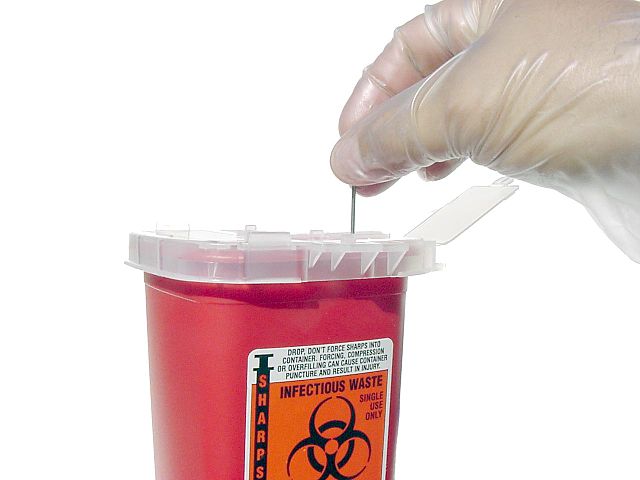
Docket number: 16-cv-7145 (N.D. Ill.)
The Hamilton Lincoln Law Institute successfully represented an objector to the $11.25 million fee request made In re Stericycle Securities Litigation, which was made on behalf of Bernstein Litowitz and other attorneys that politically support Mississippi Attorney General Jim Hood, who has exclusive control of one of the lead plaintiffs: Mississippi Public Employees’ Retirement System (MissPERS). An executive director of other lead plaintiff, Arkansas Teachers’ Retirement System (ATRS) recently testified in the State Street proceedings (concerning a diversion of $4.1 million to politically-connected attorneys who did no work in the case) that it does not monitor fee requests in its cases. Because the named plaintiffs have no capacity to monitor their billing, objector Mark Petri, on behalf of a shareholder trust where he is trustee, represented pro bono by HLLI objected in order to provide needed oversight.
The underlying litigation alleged that the board of Stericycle, Inc., a medical waste disposal company, misled shareholders about declines in the “small quantity” customer segment, which was losing business due to its practices of increasing rates every six months in violation of Stericycle’s contracts with most small businesses.
In spite of the low risk of the securities suit, which was settled before the district court had even ruled on the motion to dismiss, plaintiffs sought a full 25% of the $45 million settlement, amounting to a 2.84 lodestar multiplier—or in other words, up to $2982/hour for the attorneys. The bases of the lawsuit was not new, novel, or untested. It was previously exposed as far back as 2013 and in three prior lawsuits (1) by the New York Attorney General, (2) by a qui tam relator, a whistleblower lawsuit for overbilling the federal government, and (3) in a consumer class action on behalf of small quantity customers—all of which settled successfully for millions.
The fee request also includes a surprising diversion of work to firms not appointed by the court. Although Bernstein Litowitz alone was appointed to represent MissPERS and ATRS on behalf of all shareholders, two additional firms appear on the fee request, both of which are supporters of Jim Hood’s run for governor. The appearance of these firms after settlement recalls the allegations unsealed by Bernstein v. Bernstein Litowitz Berger & Grossmann LLP, 814 F.3d 132 (2d Cir. 2016), where a former Bernstein Litowitz partner alleged a kickback scheme where the firm would pay Mississippi attorneys connected to the attorney general’s office for pointless work after an agreement-in-principle to settle had already been reached.
Here, all of the firms have contributed to Jim Hood’s gubernatorial campaign, and family members of the Mississippi firm—Gadow Tyler, PLLC—have consulted for the campaign this year, based on campaign finance disclosures. Bernstein Litowitz’s support of Hood goes back to 2006, when its partners donated $25,000 within days of Bernstein Litowitz being retained for the first time by MissPERS. Bernstein Litowitz and Gadow Tyler contributed a total of $200,000 to the Democratic Attorneys General Association (DAGA) in 2015—a year in which Hood was the only recipient of DAGA donations. (Jim Hood received $850,000 from DAGA that year, when his entire campaign raised just over $2 million.)
In October 2016, within weeks of MissPERS being appointed in this case, Bernstein Litowitz partners contributed $20,000 to Jim Hood’s campaign—even though he would not be facing election again until 2019. And shortly after this settlement was filed with the court, Bernstein Litowitz partners contributed another $21,800 in April 2019 for Hood’s campaign for governor of Mississippi.
Because of these close ties between Bernstein Litowitz and Jim Hood, which has sole authority over MissPERS, the objector contends that MissPERS and ATRS are inadequate to monitor fees in this case, and objector seeks permission from the court to seek discovery on these issues.
The district court approved the underlying settlement on August 12, 2019, which Petri did not oppose.
On May 19, 2020, the district court entered an order approving most of plaintiffs’ attorneys’ fee request and denying Petri’s motion for discovery so as to not delay approval of the settlement Petri objected to in July 2019. Petri appealed, and an oral argument was held December 8, 2020.
On May 18, 2022, the Seventh Circuit vacated and remanded the district court’s fee award, agreeing with Petri that the lower court did not appropriately consider the actual market rate for securities litigation.
Petri reached a settlement with plaintiffs’ counsel that they would reduce their fee request to $17.5%, allowing savings to flow to the class. The district court approved the settlement, which also provides attorneys’ fees and an incentive award for Petri, noting that “[b]y successfully litigating the attorneys’ fee award on appeal and then negotiating a 17.5% award on remand, Petri’s work yielded an approximately $3.3 million benefit for the class.”
Case Documents
| Description | |
| Jan 30, 2023 | ORDER Approving Settlement with Objector Petri and Granting Fee Requests |
| May 18, 2022 | OPINION of the Seventh Circuit |
| Oct 23, 2020 | REPLY BRIEF of Mark Petri |
| Jul 28, 2020 | OPENING BRIEF of Objector Petri |
| May 19, 2020 | ORDER Granting Motion for Attorneys’ Fees |
| Jan 29, 2020 | NOTICE OF AUTHORITY and Response |
| Jul 19, 2019 | REPLY in Support of Motion |
| Jul 01, 2019 | MOTION by objector to lift stay and seek discovery |
| Jul 01, 2019 | OBJECTION by Mark Petri |
